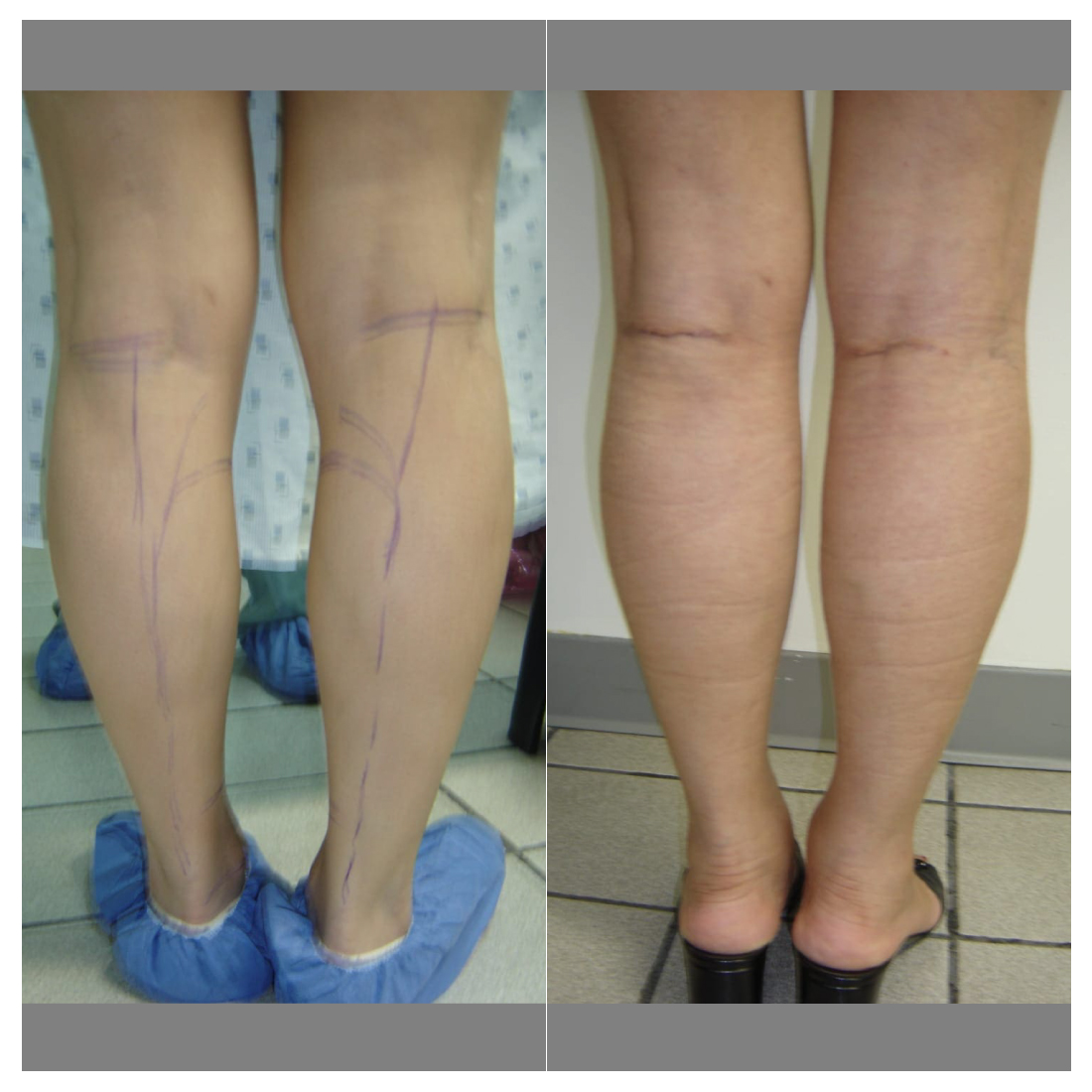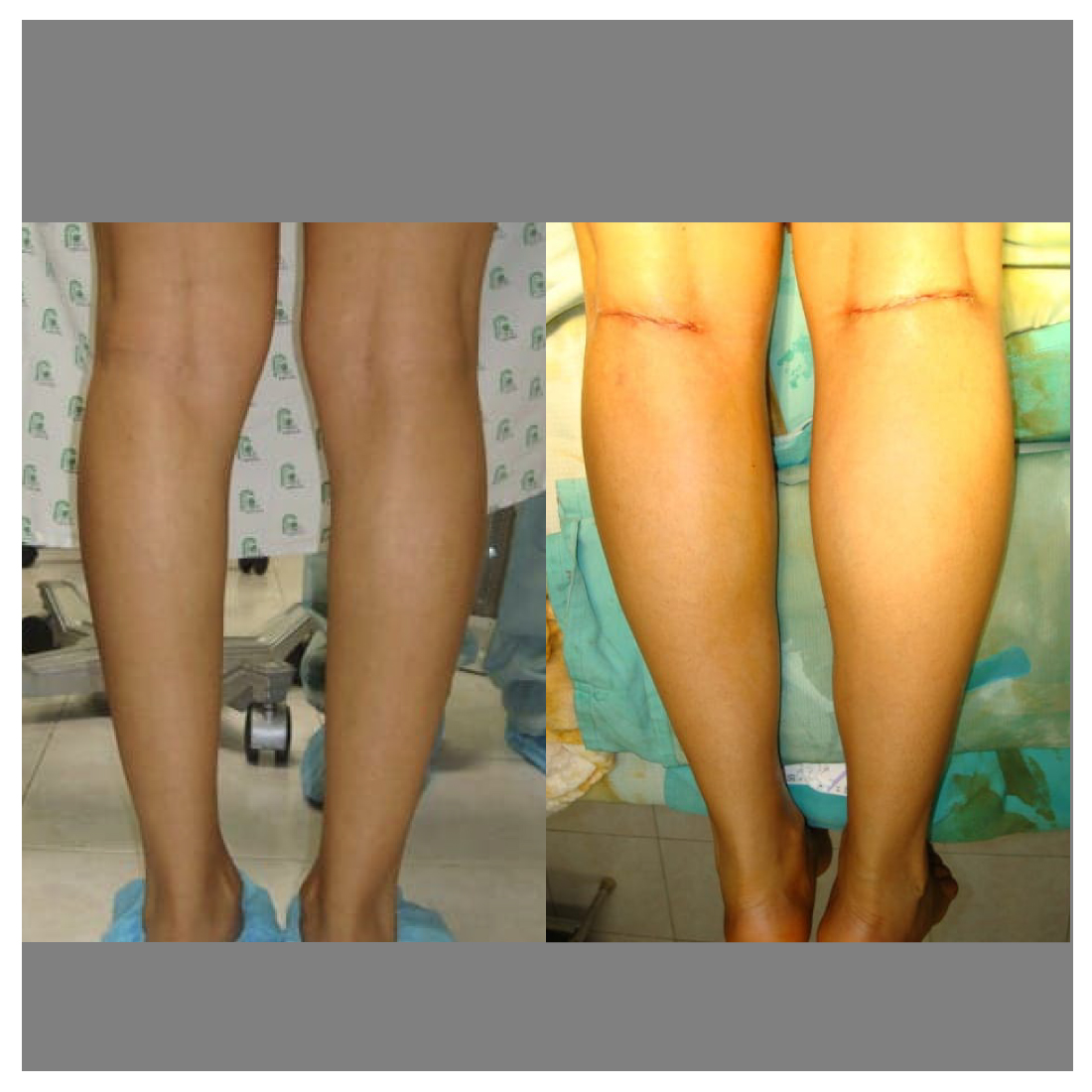
Who Is a Good Candidate for Calf Implants?
Ideal calf augmentation candidates are men and women who would like to have more developed looking muscles. Patients should be in good overall health, psychologically stable, and aware that calf implants are intended for aesthetic improvement, not perfection. Patients should arrange a consultation with a qualified cosmetic surgeon to determine whether they are good candidates for calf implants. During this consultation, they should discuss their cosmetic goals and expectations and ask whatever questions they might have about calf implants.
The Calf Implant Procedure
Calf augmentation is a generally performed as an outpatient procedure that requires about an hour to complete. During the calf implant procedure, an incision is made in the natural crease behind the knee. The surgeon then creates a pocket large enough to place the calf implants. The calf implants can be placed on both the upper inside or outside of the leg.
This area, consisting of muscle and fat, will form scar tissue that will help keep the implant in place. The incision is closed with sutures, and a bandage is applied to reduce swelling and discomfort.
Although normal activities can be resumed a few days after surgery, vigorous physical activities should be delayed for about six months. Calf augmentation is often performed in conjunction with liposuction of the ankle and leg to create a thinner and more defined look.
Calf Implant Benefits
After calf augmentation, legs can appear fuller, more muscular, and better defined. For patients with underdeveloped calves, calf implants can restore balance and proportion with the rest of their bodies. Many calf implant patients report an increased sense of self-confidence after the procedure, and many are able to wear clothes (such as shorts and swimsuits) they otherwise would feel uncomfortable in.
Calf Implant Risks
All surgical procedures carry an inherent risk of certain complications. There is always a risk of infection or adverse reaction to anesthesia. Significant complications from calf implants are unusual, however. In rare cases, bleeding or implant shifting may occur. In extremely rare instances, the calf implants may weaken the nearby muscle.
Gallery
Click for details.


